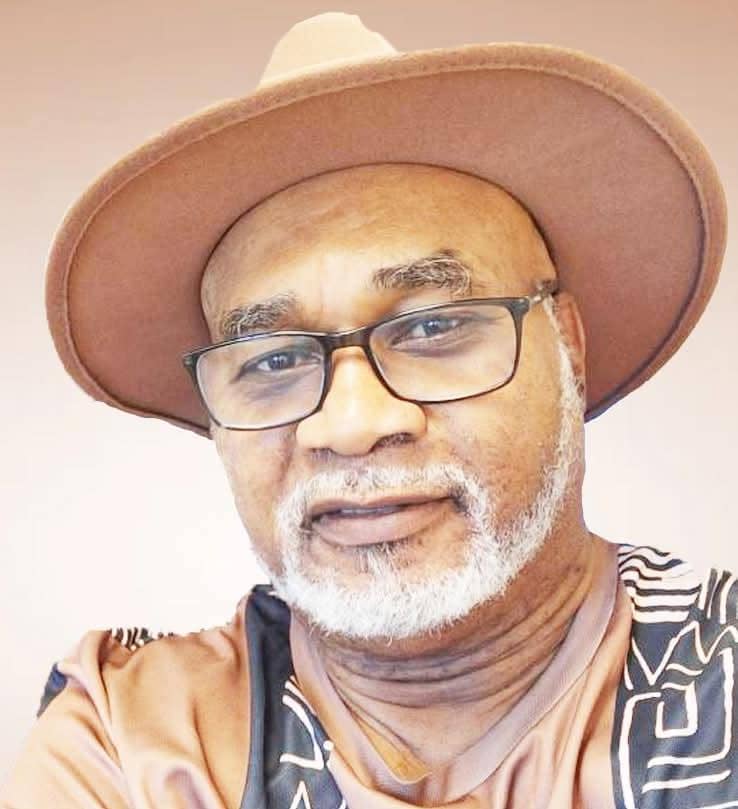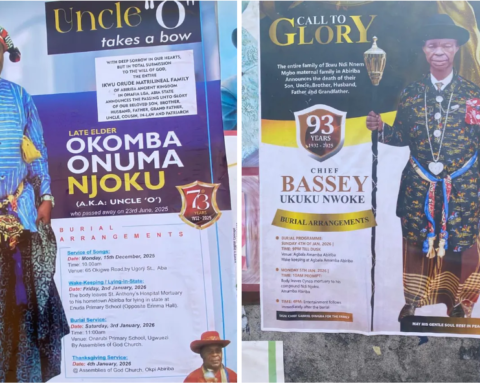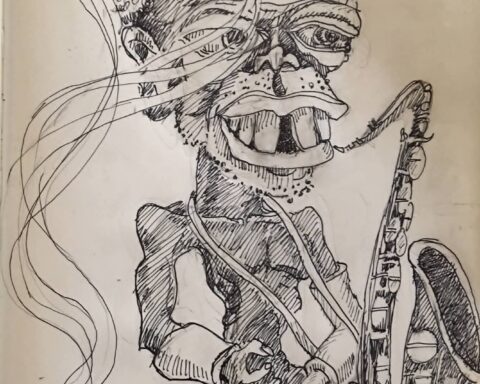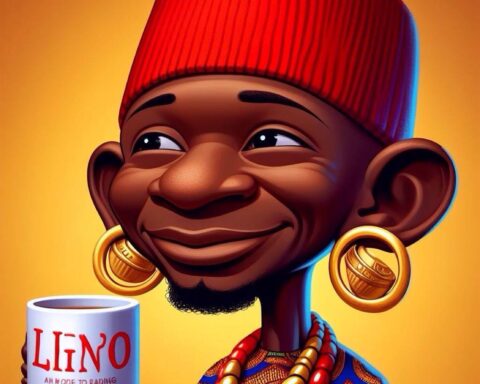By Anthony Obi Ogbo
BUHARI ’s legacy is not a national treasure – it is a cautionary tale of tyranny cloaked in uniform and democracy. In many cultures, including mine, it’s considered immoral to speak ill of the dead. But tradition should never demand silence in the face of truth, especially when that truth is soaked in blood, broken promises, and the battered dignity of a nation.
General Muhammadu Buhari, former military dictator and two-term civilian president of Nigeria, has finally departed this world. He died in London, a city he frequented not as a diplomat or global statesman, but as a medical tourist – fleeing the ruins of a healthcare system he helped wreck with decades of authoritarianism, tribalism, and economic blundering.
Muhammadu Buhari emerged from the rotten womb of Nigeria’s corrupt military order – a regime where brute force outweighed intellect, and the rattle of an AK-47 silenced the rule of law. In this twisted hierarchy, competent officers were buried in clerical backrooms while semi-literate loyalists were handed stars, stripes, and unchecked authority.
It was a theatre of mediocrity, where promotion favoured obedience over merit and ignorance was rewarded with rank. Within this structure of absurdity, Buhari thrived – a man with no verifiable high school certificate, yet elevated above the constitution, above accountability, and tragically, above the very people he was meant to serve. He didn’t just symbolise the decay; he was its product and its champion.
Let’s not sugarcoat his legacy. Buhari was no hero. He was a man whose grip on power twice disfigured Nigeria’s soul – first with military boots from 1983 to 1985, then under the guise of democracy from 2015 to 2023. His government jailed journalists, brutalised citizens, crippled the economy, and widened tribal divisions with unapologetic bias. His infamous Decree No. 2 sanctioned indefinite detentions. His so-called “War Against Indiscipline” terrorised the innocent. His economic policies were textbook disasters.
Buhari governed with the cold logic of a tyrant who believed brute force was a substitute for vision — and silence a substitute for accountability. The South East, in particular, bore the brunt of his vengeance-laced leadership. His disdain for the Igbo people was barely concealed, a poisonous remnant of civil war bitterness he never let go. In his death, that venom remains unresolved, unrepentant.
Let the record reflect that many of us do not weep. We remember. Even more damning is the legacy of hypocrisy. After decades in power and access to untold national wealth, Buhari could not trust the hospitals he left for ordinary Nigerians. He died where he lived his truth — in exile from the very system he swore to fix. That is not irony. That is an indictment.
And now, as scripted eulogies pour in — from paid loyalists, political survivors, and the ever-hypocritical elite — let us not be fooled by the hollow rituals of state burials and national mourning. Let the record reflect that many of us do not weep. We remember.
.We remember the students gunned down.
.The protesters beaten in the streets.
.The journalists silenced.
.The dreams buried beneath military decrees and broken campaign promises.
We remember that Buhari was not simply a failed leader – he was a deliberate one, whose failings were not accidents but strategies.
And so, here lie the cold remains of one of Nigeria’s most divisive and mean-spirited leaders – a man who brutalised the democratic process with the precision of a tyrant and the coldness of a man utterly void of remorse. As Muhammadu Buhari begins his final, silent descent into the earth, one can only imagine him entering eternity still questioning the justice of creation: Why did God make women? Why did He place oil in the Niger Delta and not in Daura? And why, of all things, did He dare to create tribes outside the Fulani?
It is not my job to mourn a dictator. My duty is to chronicle them — how they ruled with iron fists, trampled their people, choked the press, and finally died, not as legends, but as small men stripped of all illusions. Dictators are counterfeit gods, tormenting peaceful nations while their delusions last. But sickness humbles them. Death silences them. And in the end, all their grandstanding collapses like dust in a grave.
As a journalist, I will record Buhari’s death with precision, not reverence. I will report the pomp, the propaganda, and the hollow eulogies that will rain down like cheap perfume on a corpse. I will write the truth, because history must never confuse power with greatness — especially when evil wore both the uniform and the ballot.
Let the living learn. Let the wicked sleep. And let the truth outlive them all.
I will not mourn a man who ruled through fear and died surrounded by foreign doctors while his people die waiting in overcrowded hospital corridors. I will not pretend this is a time for unity or healing.
This is a time for reckoning. For too long, Nigeria has recycled tyrants and renamed oppression “leadership.” Buhari’s death should not be a moment of forced reverence but a pause for honest reflection. Let his final chapter be a lesson carved into our collective memory: that power without purpose, and rule without empathy, always ends in disgrace.
History should not be kind to tyrants simply because they are no longer breathing. If we are ever to break the chains of corruption and cruelty, we must bury the lies with the bodies — and speak truth, even at the graveside. Let the living learn. Let the wicked sleep. And let the truth outlive them all.
Obi Ogbo, is Visiting Professor of Communication and Journalism at Texas Southern University



























